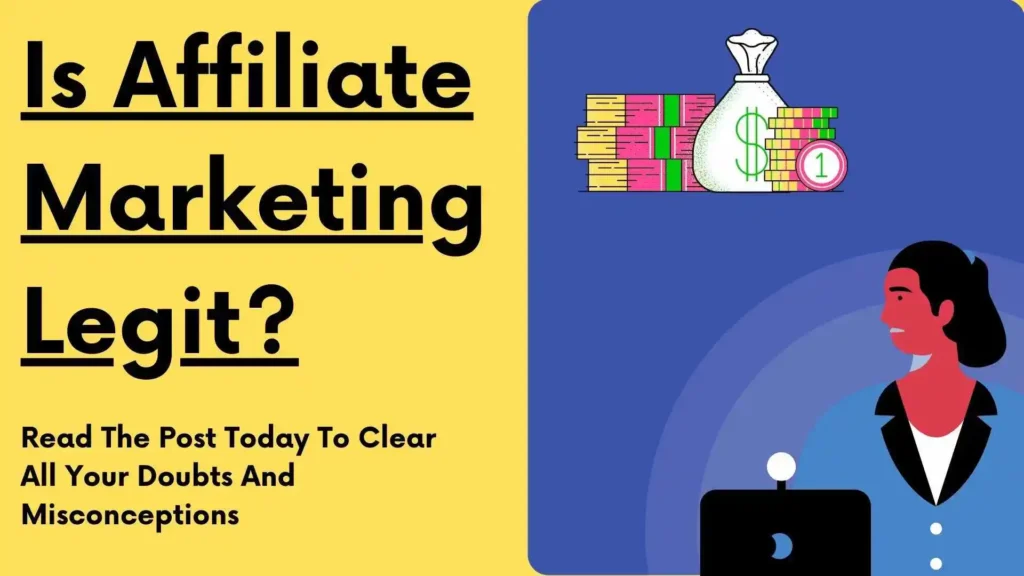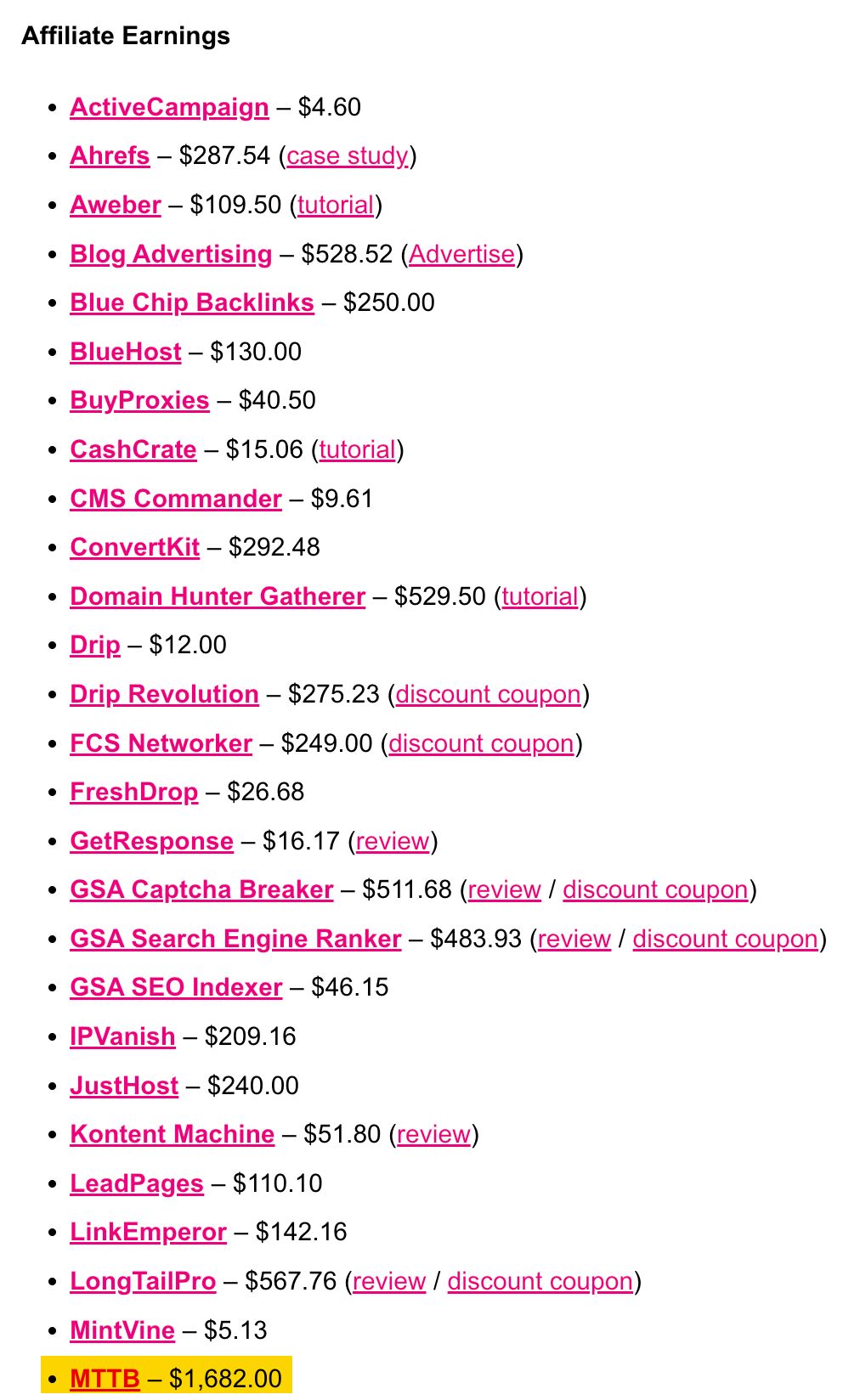Affiliate marketing is where you promote another company’s product or service in exchange for a commission. When people click your link and buy the product or service, you make money.is affiliate marketing is legit
It is absolutely not a scam.
- It is legal, as long as you comply with relevant laws and regulations in your country. For example, here are FTC’s guidelines.
- It is ethical, as long as you disclose your relationship as an affiliate and only promote products you believe in.
Many websites earn money this way, including major ones like the New York Times, The Verge, NerdWallet, and more.
The real question is… is it worth your time?
Is affiliate marketing worth it?
There are plenty of examples of folks making fat stacks with affiliate marketing, too.
- Entrepreneur Pat Flynn made around six figures in just one month in 2017.
- Living Cozy, an independent affiliate website (i.e., not associated with any major brands), achieved more than $12 million in revenue.
- Another independent site, Grilling Dad, generated over $25,000 per month.
- MoneySmart, Asia’s NerdWallet, made $29 million in 2022.
- DogFoodAdvisor, a dog food affiliate site, was acquired for $9 million.
- Wirecutter (now part of the New York Times) was acquired for $30 million.
That said, it’s no get-rich-quick scheme. The process is simple, but not easy. It takes tons of investment and time before you start earning anything, and you need to know what you’re doing, especially when it comes to SEO.

Scams to look out for
Affiliate marketing itself is not a scam, but like any industry, it has its share of fraudulent activities.
Here are three major ones to look out for: is affiliate marketing is legit
Pay-to-join affiliate programs
As its name suggests, you have to pay a fee to join these affiliate programs. Don’t.
Real affiliate programs are always free to join. After all, there is no downside for the merchant, as they only pay you for each sale.
Fake gurus, courses, and training programs
In the affiliate marketing industry, fake gurus are people who sell courses on how to do affiliate marketing (or make money online) but have no real-world experience. Their main money maker is not affiliate marketing but the course they’re selling you.
As a result, these courses or training programs are typically underwhelming, generic, and likely do not deliver on their promises.
For example, years ago, before I started working as a digital marketer, I read Tim Ferriss’ 4-Hour Workweek and became interested in making money online. So, I signed up for a two-day offline workshop for a hefty sum in Singapore.
The workshop was incredibly underwhelming. Most of the participants needed help even double-clicking icons. I wasted two days on what could have easily been a three-hour workshop. For the price I paid, it was indeed a scam. True enough, later on, I found out the instructor was a well-known “fake” guru (I was green and didn’t know it back then).
I want to help you avoid my fate, so here are some red flags to spot:
- Unrealistic promises — If it sounds too good to be true, it probably is.
- Pressure tactics — They read Cialdini’s book once and spammed you with urgency and scarcity. Especially if they’re fake (“How does an online course run out?”)
- Image over value — Rather than provide free content, their marketing and positioning are all about how luxurious their life is, how many sports cars they have, and how much money they make. Just know that their cars are usually rented and their revenue numbers doctored.
- Questionable success stories — They have “social proof,” but they look suspiciously fake. Generic names or no photo IDs. And these days, AI-generated images and testimonials.
- No proof of their own success — They have no case studies or sites of their own to show. If they have charts (usually up and to the right), it’s fake or stolen. Check if you can ask them for their actual sites, then plug that site into our free traffic checker to see if it’s actually generating search traffic. (If they refuse to show you their site, it could be a telltale sign.)
To find good instructors and courses, invert everything above and find instructors that: Affiliate marketing
- Don’t overpromise. They should give realistic expectations.
- Don’t use pressure tactics. If there’s urgency to their offer, it should be legitimate (e.g., it’s a live cohort class, so there can only be that many people).
- Provide free and valuable content that proves their expertise.
- Have real (and independent) success stories you can find on social media, forums, Reddit, etc.
- Have proof of success (e.g., they got acquired for $X and it was reported in the news; they flipped their site, and there’s proof on a marketplace like EmpireFlippers).

Dodgy, low-quality, or scam products
It’s tempting to promote a product just because it offers high commissions. But you’ll be damaging your reputation if you end up promoting subpar, low-quality, or worse, products that don’t exist.
For example, My Top Tier Business (MTTB) was a product that many affiliate marketers used to promote.

is affiliate marketing is legit
How to start affiliate marketing
Convinced that affiliate marketing is worth your time? Here are the basics to get you started:
1. Choose your niche
A niche is your area of focus. For example, while it’s not my idea of fun, your website could be all about vacuum cleaners.
An ideal affiliate niche has four qualities: in Affiliate marketing
- High-paying affiliate programs
- High traffic potential
- Low competition
- A topic you’re interested in

to know more about us click here-

to know more about- click here

Here’s a relevant blog comment based on the provided content:
“I recently stumbled upon this real estate website, and I must say, I’m thoroughly impressed! The featured properties are breathtaking, and the prices are quite competitive. I appreciate the transparency and professionalism of the real estate team, as highlighted by the positive testimonials. The amenities offered are top-notch, and the prime locations make these properties even more attractive. I’m particularly interested in the 2 BHK and 3 BHK options, as they seem to offer the perfect balance of space and affordability. I’m looking forward to scheduling a visit and potentially making one of these beautiful properties my new home. Thank you for providing such a fantastic service!”